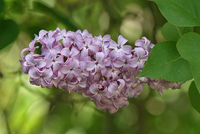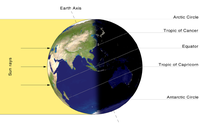2014年05月18日
歳時記(24)−春(7)− song of a brook

髙野辰之博士(1876〜1947)
(旧暦4月20日)
小川の歌は、日本においては、文部省唱歌「春の小川」でも有名ですが、欧米でも小川の調べは多くの詩歌にうたわれています。
ちなみに、文部省唱歌「春の小川」は、東京音楽学校教授高野辰之(1876〜1947)が作詞し、明治45年(1912)に『尋常小学唱歌第四学年用』に掲載されました。
一、
春の小川はさらさら流る。
岸のすみれやれんげの花に、
にほひめでたく、色うつくしく、
咲けよ咲けよと、ささやく如く。
昭和16年(1941)、国民学校令(昭和16年3月1日勅令第148号)の施行に伴って教科書が改訂され、当時の国民学校令施行規則では、国語で文語文を教えるのは5年生以上と定められていたため、詩人林柳波(1892〜1974)が歌詞を口語体に変えたとされています。
一、
春の小川は、さらさら行くよ。
岸のすみれや、れんげの花に、
すがたやさしく、色うつくしく
咲いてゐるねと、ささやきながら。
戦後の昭和22年(1947)、最後の文部省著作音楽教科書である『三年生の音楽』では再び歌詞が次のように改められました。
一、
春の小川は、さらさら行くよ。
岸のすみれや、れんげの花に、
すがたやさしく、色うつくしく
咲けよ咲けよと、ささやきながら。
この歌詞は、私たちが習った歌詞ですね。
髙野辰之は、長野県下水内郡永田村(現中野市)に生まれ、長野県師範学校卒業後、東京帝国大学教授上田万年に師事し、国語・国文学を学んでいます。明治42年(1909)に文部省小学校唱歌教科書編纂委員を嘱託された髙野は、今もわたしたちの心に残る有名な唱歌を次々と発表しています。
1. 明治44年(1911) 35歳 尋常小学唱歌第一学年用に「日の丸の旗」を掲載
尋常小学唱歌第二学年用に「紅葉」を掲載
2. 明治45年(1912) 36歳 尋常小学唱歌第三学年用に「春がきた」を掲載
尋常小学唱歌第四学年用に「春の小川」を掲載
3. 大正 3年(1914)37歳 尋常小学唱歌第六学年用に「故郷」、「朧月夜」を掲載
さて、イギリスにおいても、次のような ‘song of a brook’ があります。
When primroses are out in Spring,
And small, blue violets come between;
When merry birds sing on boughs green,
And rills, as soon as born, must sing;
春、サクラソウが花をつけ、
かわいい、うす紫のスミレがその間に咲くとき;
陽気な小鳥が緑のこずえにさえずり、
細い溝が、流れ出るやいなや、歌をうたわなければならぬとき;
When butterflies will make side-leaps,
As though escaped from Nature's hand
Ere perfect quite; and bees will stand
Upon their heads in fragrant deeps;
蝶たちが横の跳躍を行うとき、
まるで自然の手から逃れるように
まったく完全なものの前に;そして蜂たちは飛び立ち
香りがある深みの中を彼らの頭の上に;
When small clouds are so silvery white
Each seems a broken rimmèd moon—
When such things are, this world too soon,
For me, doth wear the veil of Night.
小さな雲がとても銀白色であるとき
それぞれが壊れた縁取りの月のように
そのようなものがそうであるとき、この世界はあまりにもすぐに
私にとって、夜の覆いをまとう。
(嘉穂のフーケモン拙訳)
William H. Davies. 1870 − ‘ Days Too Short ’

William Henry Davies(1871〜1940)
William Henry Davies or W. H. Davies (3 July 1871– 26 September 1940)was a Welsh poet and writer. Davies spent a significant part of his life as a tramp or hobo, in the United Kingdom and United States, but became one of the most popular poets of his time. The principal themes in his work are observations about life's hardships, the ways in which the human condition is reflected in nature, his own tramping adventures and the various characters he met. Davies is usually considered one of the Georgian poets, although much of his work is atypical of the style and themes adopted by others of the genre.
(From Wikipedia)
ウィリアム・H・ディビス(1871〜1940)は、ウエールズ出身の詩人であり作家です。
注)ウエールズ(Weles): グレートブリテンおよび北アイルランド連合王国(The United Kingdom of Great Britain and Northern Ireland)を構成する4つの国の一つで、グレートブリテン島の南西に位置する。
ディビスは、彼の人生の重要な時期をイギリス連合王国とアメリカ合衆国で、放浪者あるいは渡り労働者として過ごしましたが、その時代の最も人気のある詩人の一人となりました。彼の著作における主要なテーマは、人生の苦難に対する観察ですが、
人々の状況が本質的に反映されるこの方法は、彼が出会った自身の放浪人生と様々な特色が反映されているものでもあります。
ディビスは、通常、ジョージ王朝時代風の詩人の一人と思われていますが、彼の著作の多くは、不定形の様式であり他のジャンルに採用されるテーマでもあります。
(ウィキペディアより)
It was an April morning: fresh and clear
The Rivulet, delighting in its strength,
Ran with a young man's speed; and yet the voice
Of waters which the winter had supplied
Was softened down into a vernal tone.
The spirit of enjoyment and desire,
And hopes and wishes, from all living things
Went circling, like a multitude of sounds.
爽やかな澄み切った四月の朝。
せせらぎはその勢いを喜び
若もののように駈ける。にもかかわらず冬が
もたらした水の音は
春の音色に和らぐ。
生きとし生けるものからの喜びと欲望
そして希望と願望の心が、
ざわめきのように巡った。
The budding groves seemed eager to urge on
The steps of June; as if their various hues
Were only hindrances that stood between
Them and their object: but, meanwhile, prevailed
Such an entire contentment in the air
That every naked ash, and tardy tree
Yet leafless, showed as if the countenance
With which it looked on this delightful day
Were native to the summer.--Up the brook
I roamed in the confusion of my heart,
Alive to all things and forgetting all.
芽生え始めた木立は、六月の足音に
合わせようとして、まるで様々な色合いが
彼らと目標との間に立って
ただ妨げになっているようだ。でも
空中には安らぎが溢れ
トネリコやまだ葉のない遅ればせの木も
あたかも、夏にはいつものようになる
楽しい日を眺めるような表情を見せる―
小川を上り、すべてに気づき、すべてを忘れながら
私は夢中で歩き回った。
At length I to a sudden turning came
In this continuous glen, where down a rock
The Stream, so ardent in its course before,
Sent forth such sallies of glad sound, that all
Which I till then had heard, appeared the voice
Of common pleasure: beast and bird, the lamb,
The shepherd's dog, the linnet and the thrush
Vied with this waterfall, and made a song,
Which, while I listened, seemed like the wild growth
Or like some natural produce of the air,
That could not cease to be.
ようやく続く谷間の曲がり角に
やって来ると、岩の下で
前に進もうとしている流れが
歓びの音をほとばしらせている、それはすべて
共通の歓びの声のようにその時までの私は聞いた。
けものや鳥や子羊が
羊飼いの犬やムネアカヒワやツグミが
この滝と競って歌い
聞いている間に、野生の成長のように
あるいは大気の自然な産物のように思え、
それは止めることはできなかった。
Green leaves were here;
But 'twas the foliage of the rocks--the birch,
The yew, the holly, and the bright green thorn,
With hanging islands of resplendent furze:
And, on a summit, distant a short space,
By any who should look beyond the dell,
A single mountain-cottage might be seen.
I gazed and gazed, and to myself I said,
'Our thoughts at least are ours; and this wild nook,
My EMMA, I will dedicate to thee.'
そこには緑の葉が茂っていた。
それは岩々を覆う葉々 ― 樺の木
イチイ、ヒイラギ、明るい緑のイバラ
まばゆいエニシダが下がる丘。
そして、少し離れた頂きに上り
谷の向こうを眺めると
一軒の山小屋が見える。
私はただただ見入り、つぶやく、
「勝手に思おう。この自然のままの人目につかない場所、
私のエマ、ここはお前に献げよう」と。
----Soon did the spot become my other home,
My dwelling, and my out-of-doors abode.
And, of the Shepherds who have seen me there,
To whom I sometimes in our idle talk
Have told this fancy, two or three, perhaps,
Years after we are gone and in our graves,
When they have cause to speak of this wild place,
May call it by the name of EMMA'S DELL.
―この土地はたちまち私のもう一つの故郷になり、
私の戸外の住居となった。
そして、ここは私と出合った羊飼いの家、
彼らと時々世間話をしたとき
こんなきまぐれな想いを話しておいた。「たぶん二、三年の後
私たちが死んで墓に入った時には
この自然の場所を語るとき
エマの谷と呼んでくれるだろう」と。
(嘉穂のフーケモン拙訳)
William Wordsworth : ‘ It was an April morning ’

Portrait of William Wordsworth by Benjamin Robert Haydon (National Portrait Gallery).
William Wordsworth (7 April 1770 – 23 April 1850) was a major English Romantic poet who, with Samuel Taylor Coleridge, helped to launch the Romantic Age in English literature with the 1798 joint publication Lyrical Ballads.
Wordsworth's magnum opus is generally considered to be The Prelude, a semiautobiographical poem of his early years which he revised and expanded a number of times. It was posthumously titled and published, prior to which it was generally known as "the poem to Coleridge". Wordsworth was Britain's Poet Laureate from 1843 until his death in 1850.
(From Wikipedia)
ウィリアム・ワーズワース(William Wordsworth, 1770〜1850)は、イギリスの代表的なロマン派詩人であり、サミュエル・テイラー・コールリッジ(Samuel Taylor Coleridge、1772〜1834)とともに1798年に出版された共著「抒情民謡集」(Lyrical Ballads)をもってイギリス文学におけるロマン派時代の開始を手助けしました。
ワーズワースの代表作は、一般的に、何度も修正し、発展させた初期の半自叙伝的な詩である「序曲」(The Prelude)と考えられています。それは死後にタイトルをつけられて出版されましたが、以前からそれは「コールリッジへの詩」として一般に知られていました。ワーズワースは1843年から1850年の彼の死まで、英国の桂冠詩人でした。
(ウィキペディアより)
歳時記(23)−春(6)− lilac
歳時記(22)ー夏(8)ー五月雨
歳時記(21)ー春(5)ー春雷
歳時記(20)−夏(7)− canicular days
歳時記(19)−夏(6)−summer eve
歳時記(18)-春(4)-西風(Zephyr)
歳時記(22)ー夏(8)ー五月雨
歳時記(21)ー春(5)ー春雷
歳時記(20)−夏(7)− canicular days
歳時記(19)−夏(6)−summer eve
歳時記(18)-春(4)-西風(Zephyr)
※このブログではブログの持ち主が承認した後、コメントが反映される設定です。









